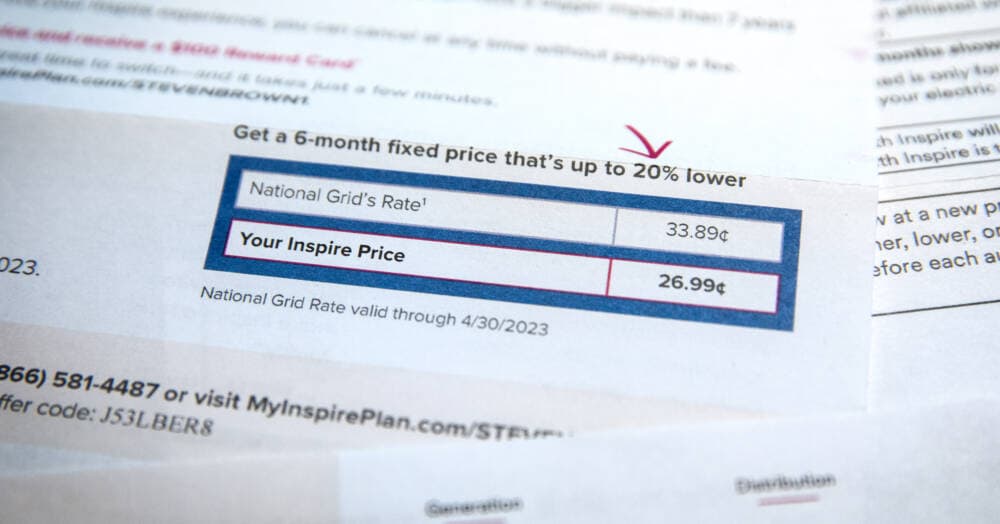Advertisement
Mass. leaders eye changes to 'predatory' electric sales tactics

If Boston was sending individual competitive electric supplier salespeople out to knock on doors, Rev. Mariama White-Hammond, the city's top environmental official, would have known about it.
So she was surprised when her husband called and said someone was at their Dorchester home, claiming to represent the city and offering lower-cost electricity directly from a supplier instead of from a utility.
White-Hammond had "choice words" for the salesperson when she learned about the misleading pitch, she recalled Monday, describing it as just one instance of many in which Bay Staters are deceived or pressured into enrolling with a competitive electric supplier only to find they wind up paying more for power.
Adding herself and Boston Mayor Michelle Wu to a growing coalition of policymakers, White-Hammond urged the Legislature to intervene and effectively ban a more than two-decade-old practice of competitive suppliers selling electricity to residential consumers.
WBUR has reported on how these competitive suppliers have resulted in higher bills for Massachusetts customers and compiled tips on how to avoid losing money. It also investigated whether companies that sell "100% renewable energy" are really offering green power.
Attorney General Andrea Campbell's office published a report last month concluding that, between 2015 and 2021, Massachusetts households paid $525 million more to competitive suppliers for electricity than they would have if they got their power from utility companies — an average annual loss of $231 for each of the 430,000 customers covered in the analysis.
Bills filed by state Sen. Brendan Crighton and House Second Assistant Majority Leader Rep. Frank Moran would prohibit suppliers, energy marketers and energy brokers from signing new contracts with residential retail customers.
A good deal of the commentary during Monday's committee meeting focused on why the group of influential policymakers want to end competitive supply options for households altogether rather than impose new limits or guardrails. Senate Minority Leader Bruce Tarr at one point asked whether that move would be "short-sighted."
Liz Anderson, the deputy chief of the AG's energy and telecommunications division, told lawmakers that a ban would help hundreds of thousands of people with no direct cost to the state, compared to resource-intensive regulation and enforcement.
"Our office has been pursuing enforcement for almost 10 years, and we've received $19 million for consumers in the Commonwealth. Now, we believe we've been successful in those efforts, but that's really a drop in the bucket when you're comparing it to $525 million lost," Anderson said.